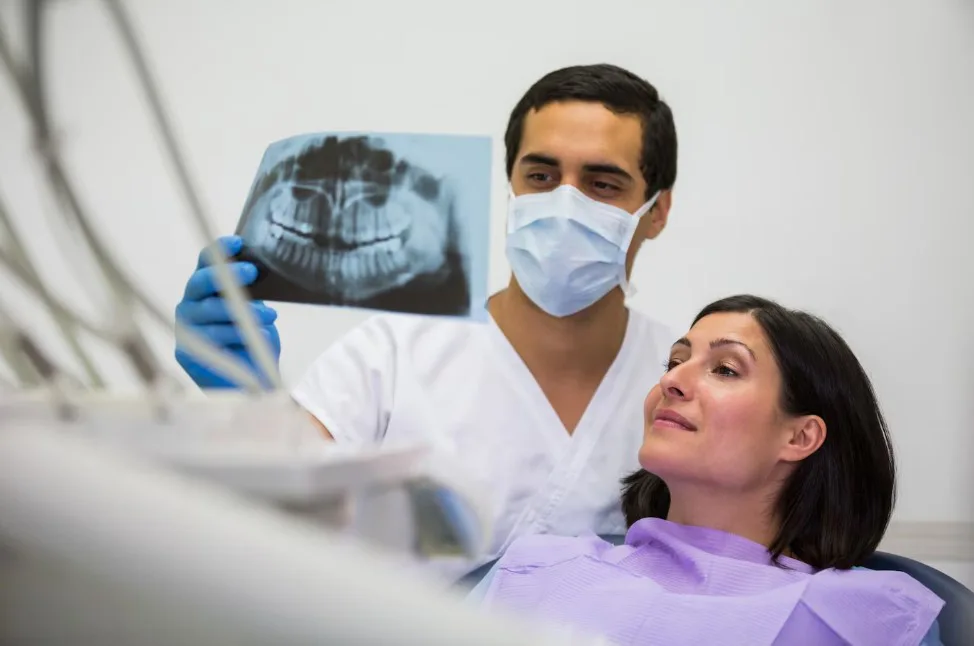Prosthodontic treatment is a field of dentistry related to various applications made to find solutions to problems arising as a result of tooth loss or deficiency. People with dental problems are directed to various units for different applications. Prosthetic treatment is one of them.
Prosthodontic treatment is a dental treatment process in which tooth loss or damage is repaired aesthetically and functionally. Studies in this field are needed for implant and prosthetic applications that help to improve the patient’s quality of life, restore an aesthetic smile and restore functional chewing ability.
What is Prosthodontics and What does it do?
Dental prosthodontics or prosthetic dentistry provides solutions for patients with clinical conditions related to missing or inadequate teeth and/or oral and maxillofacial tissues. These practice phases focus on treatment planning, rehabilitation and the maintenance of oral function, comfort, appearance and health.
What does prosthodontics look for? This field is usually applied for the following purposes;
- Solving problems caused by missing teeth,
- Restoration of damaged teeth by various methods,
- Correction of maxillofacial problems,
- Treatment of temporomandibular joint disorders.
The use of prostheses, bridges, implants and other prosthetic solutions, as well as crowns and inlays are among these applications. Prosthetic applications can also be used for structural problems such as cleft palate.
Prosthodontic treatment plays a vital role in restoring oral function and aesthetics in patients with missing or damaged teeth. Prosthodontists have specialized training and expertise to meet a wide range of dental needs, from simple fillings and crowns to complex full mouth rehabilitation with implants. This process can result in fully removable dentures, zirconium teeth on implants, etc. The details of the procedure will be determined after the doctor’s examination.

What is a Prosthetic Tooth?
Prosthetic tooth refers to an artificial tooth or tooth structure used to restore the function and aesthetics of missing or damaged teeth.
Are prosthetics and dentures the same? Prosthetics covers all areas such as design and production related to artificial devices and products to be used in this field. Prosthesis refers to the artificial teeth resulting from these studies. Therefore, they are related but have different meanings.
How is prosthetic dental treatment performed? The answer to this question will vary depending on the patient’s needs and current health status. Some of the applications to be made in this context can be listed as follows;
- Dental bridge,
- Implant,
- Full prosthesis,
- Partial prosthesis,
- Hybrid prosthesis,
- Veneers.
Prosthetic treatment can be completed with fixed or removable prostheses, in some cases only with implant treatments. It is not possible to treat patients with similar problems in the same way. Factors such as the patient’s age, general health status, disease history and bone structure are taken into consideration when performing these procedures.
Who is Prosthetic Dental Treatment Applied to?
A wide range of treatments such as dental prosthesis procedures, veneers, implant applications are included in this field. Therefore, the patient groups that can be applied are quite wide in this direction. In some cases, only prosthetic treatments create solutions, while sometimes a holistic dentistry practice may be needed for the solution and other details of these problems.
Some situations that may require a prosthetic dental treatment appointment request can be listed as follows;
Missing teeth: Individuals with one or more missing teeth can solve their problems with implants, bridges, partial or complete dentures.
Damaged or decayed teeth: People with chipped, broken or decayed teeth may need crowns, inlays, onlays or veneers to restore the appearance and function of the tooth.
Temporomandibular joint disorders: Patients suffering from jaw joint problems may receive specialized care from a prosthodontist, including oral appliances or other treatments to relieve symptoms.
Congenital or developmental problems: People with congenital conditions such as cleft palate or ectodermal dysplasia, where teeth may be missing or malformed, can have these defects corrected with prosthodontic treatment.
In summary, prosthodontics addresses a wide range of patients by addressing functional, aesthetic and health-related dental issues.



